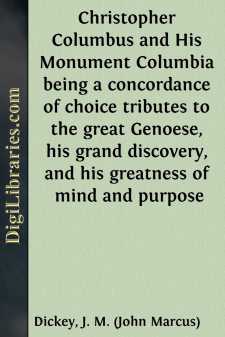Categories
- Antiques & Collectibles 13
- Architecture 36
- Art 48
- Bibles 22
- Biography & Autobiography 816
- Body, Mind & Spirit 145
- Business & Economics 28
- Children's Books 18
- Children's Fiction 14
- Computers 4
- Cooking 94
- Crafts & Hobbies 4
- Drama 346
- Education 58
- Family & Relationships 59
- Fiction 11831
- Foreign Language Study 3
- Games 19
- Gardening 17
- Health & Fitness 34
- History 1378
- House & Home 1
- Humor 147
- Juvenile Fiction 1873
- Juvenile Nonfiction 202
- Language Arts & Disciplines 89
- Law 16
- Literary Collections 686
- Literary Criticism 179
- Mathematics 13
- Medical 41
- Music 40
- Nature 179
- Non-Classifiable 1768
- Performing Arts 7
- Periodicals 1453
- Philosophy 66
- Photography 2
- Poetry 897
- Political Science 203
- Psychology 45
- Reference 154
- Religion 516
- Science 126
- Self-Help 86
- Social Science 82
- Sports & Recreation 34
- Study Aids 3
- Technology & Engineering 59
- Transportation 23
- Travel 463
- True Crime 29
Our website is made possible by displaying online advertisements to our visitors.
Please consider supporting us by disabling your ad blocker.
Christopher Columbus and His Monument Columbia being a concordance of choice tributes to the great Genoese, his grand discovery, and his greatness of mind and purpose
Categories:
Description:
Excerpt
THE LIFE OF COLUMBUS.
Christopher Columbus, the eldest son of Dominico Colombo and Suzanna Fontanarossa, was born at Genoa in 1435 or 1436, the exact date being uncertain. As to his birthplace there can be no legitimate doubt; he says himself of Genoa, in his will, "Della salà y en ella naci" (from there I came, and there was I born), though authorities, authors, and even poets differ. Some, like Tennyson, having
Stay'd the wheels at Cogoletto
And drank, and loyally drank, to him.
His father was a wool-comber, of some small means, who was living two years after the discovery of the West Indies, and who removed his business from Genoa to Savona in 1469. Christopher, the eldest son, was sent to the University of Pavia, where he devoted himself to the mathematical and natural sciences, and where he probably received instruction in nautical astronomy from Antonio da Terzago and Stefano di Faenza. On his removal from the university it appears that he worked for some months at his father's trade; but on reaching his fifteenth year he made his choice of life, and became a sailor.
Of his apprenticeship, and the first years of his career, no records exist. The whole of his earlier life, indeed, is dubious and conjectural, founded as it is on the half-dozen dark and evasive chapters devoted by Hernando, his son and biographer, to the first half-century of his father's times. It seems certain, however, that these unknown years were stormy, laborious, and eventful; "wherever ship has sailed," he writes, "there have I journeyed." He is known, among other places, to have visited England, "Ultima Thule" (Iceland), the Guinea Coast, and the Greek Isles; and he appears to have been some time in the service of René of Provence, for whom he is recorded to have intercepted and seized a Venetian galley with great bravery and audacity. According to his son, too, he sailed with Colombo el Mozo, a bold sea captain and privateer; and a sea fight under this commander was the means of bringing him ashore in Portugal. Meanwhile, however, he was preparing himself for greater achievements by reading and meditating on the works of Ptolemy and Marinus, of Nearchus and Pliny, the Cosmographia of Cardinal Aliaco, the travels of Marco Polo and Mandeville. He mastered all the sciences essential to his calling, learned to draw charts and construct spheres, and thus fitted himself to become a consummate practical seaman and navigator.
In 1470 he arrived at Lisbon, after being wrecked in a sea fight that began off Cape St. Vincent, and escaping to land on a plank. In Portugal he married Felipa Moñiz de Perestrello, daughter of Bartollomeu Perestrello, a captain in the service of Prince Henry, called the Navigator, one of the early colonists and the first governor of Porto Santo, an island off Madeira. Columbus visited the island, and employed his time in making maps and charts for a livelihood, while he pored over the logs and papers of his deceased father-in-law, and talked with old seamen of their voyages and of the mystery of the Western seas. About this time, too, he seems to have arrived at the conclusion that much of the world remained undiscovered, and step by step to have conceived that design of reaching Asia by sailing west which was to result in the discovery of America. In 1474 we find him expounding his views to Paolo Toscanelli, the Florentine physician and cosmographer, and receiving the heartiest encouragement.
These views he supported with three different arguments, derived from natural reasons, from the theories of geographers, and from the reports and traditions of mariners. "He believed the world to be a sphere," says Helps; "he underestimated its size; he overestimated the size of the Asiatic continent. The farther that continent extended to the east, the nearer it came round toward Spain." And he had but to turn from the marvelous propositions of Mandeville and Aliaco to become the recipient of confidences more marvelous still. The air was full of rumors, and the weird imaginings of many generations of mediæval navigators had taken shape and substance, and appeared bodily to men's eyes. Martin Vicente, a Portuguese pilot, had found, 450 leagues to the westward of Cape St. Vincent, and after a westerly gale of many days' duration, a piece of strange wood, sculptured very artistically, but not with iron....


